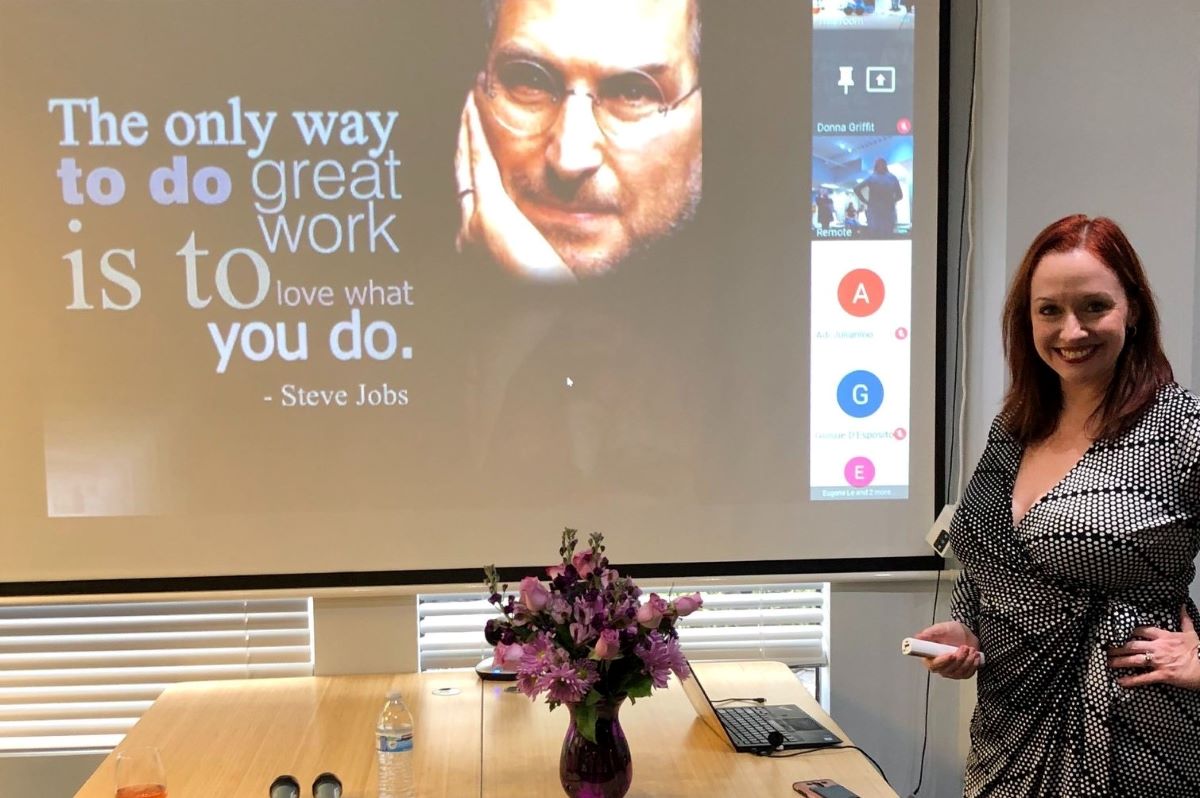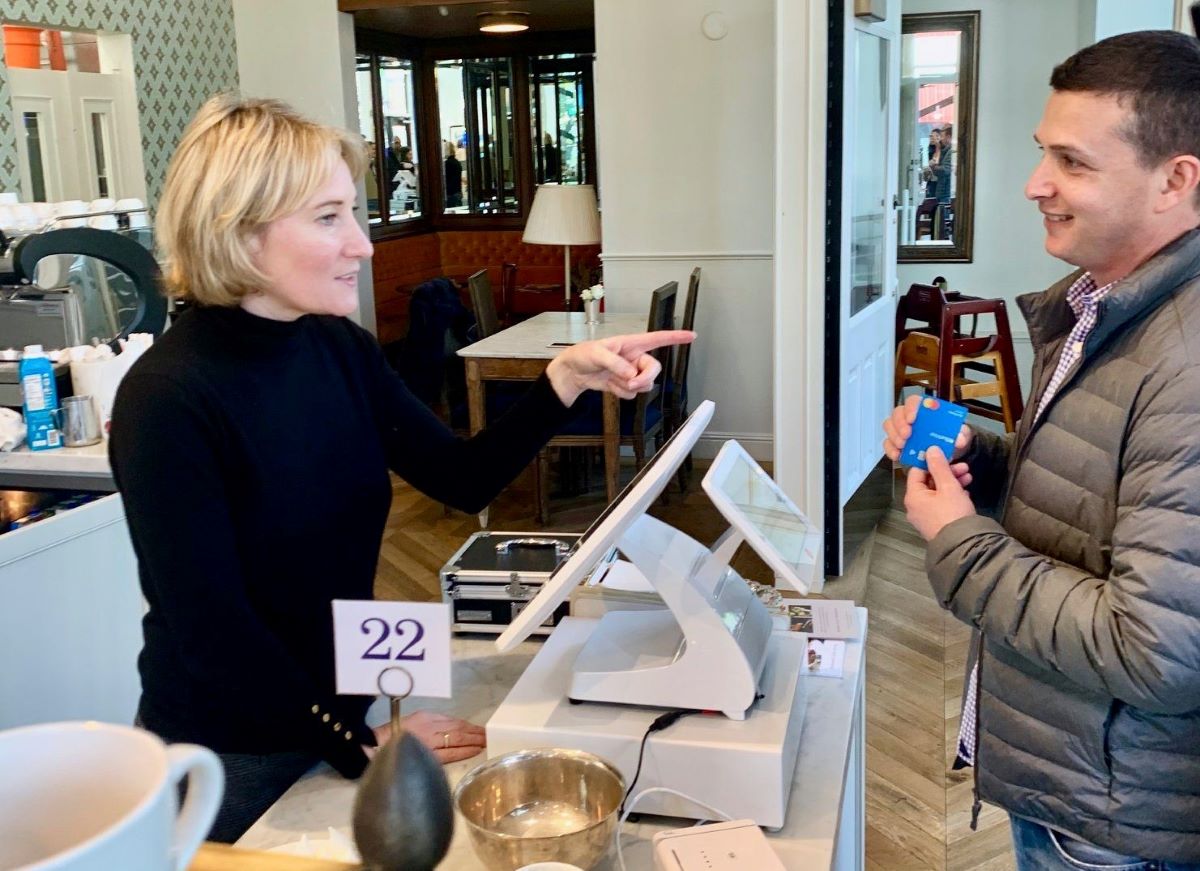How BlueVine Unconventionally Fills the Gaps in the Conventional Financing Sphere
The business involves a good deal of capital invested and risk. Some entrepreneurs elect to take that risk on themselves, while others choose to hire outside firms to help shoulder that risk. BlueVine enter the go-between – take the risk for others. This company will buy and collect the receivable that’s owed to its customers, then take a fee for its services. Some call this factoring or financing. But in many cases, it’s simply good business. Everyone shares and everyone wins.
Based in Redwood City, have an office in Jersey City, and a development center in Tel Aviv, BlueVine now have about more than 300 employees worldwide. The company provides a seamless, one-stop digital shop for small business banking, which has become even more important during the pandemic. BlueVine, according to its website, served more than 300,000 small businesses with COVID-19 relief.
Perfect Combination of Product and Entrepreneurial Spirit
Before starting BlueVine in 2013, Eyal Lifshitz – BlueVine’s founder and CEO – had worked at Greylock Partners in Israel and covered that region and also Europe at the time. It was a time where lots of innovation in financial services was happening, specifically in lending. Lifshitz believed in the thesis of lending as an online product.
“Financing is one of those things that you can say was born to be an online product because there isn’t a consumer or a small business owner that will tell you that they prefer to go to a physical location, fill out a mountain of paperwork, then wait three weeks to get an answer, versus sitting at home or in your office or in your pajamas on your computer clicking a few buttons, filling out an online form, and getting potentially an instant response. That is a better experience.” – said Lifshitz.
The online experience for the consumer and the small business is obviously better for financing. Lifshitz completely believes in that trend and the innovations around capital and innovations in machine learning. He learned about invoice factoring, which was a form of commercial financing, while at Greylock. It was a form of financing for businesses, and it was one where nobody had yet made an online product. And so, that was the initial idea for BlueVine.
For the founder Lifshitz himself, as a third-generation entrepreneur, he was passionate about small businesses. His father was a small business owner, having a physical therapy clinic for 30 years. Lifshitz’s grandfather also owned a lighting and electricity store for 40 years. Though Lifshitz grew up in the atmosphere of small business ownership, he did not have a desire to start a company until he was in his 30s. When he saw the opportunity for what would become BlueVine, he was first looking at it from a venture perspective and thinking he should find a CEO for the idea. But the idea became a calling that he had to pursue himself.
“I didn’t know I wanted to be an entrepreneur up until I started BlueVine. If you look at my career, it’s a pretty safe journey. I stuck to larger companies, pretty strong brand names. I didn’t really take any risk before I started BlueVine. The reason I started BlueVine was less so about the personal interest or draw to actually become a founder but rather the opportunity and the calling.” – said Lifshitz. In his quest to help small business succeed and thrive, Lifshitz is also honoring the legacy of his father and grandfather.

Those kind of two passions came together and he saw the opportunity to deliver a product that made a lot of sense for small businesses but hadn’t yet been brought online. The vision since then has expanded considerably, but that was the initial thinking. In the eight years since BlueVine was founded, Lifshitz has continued to see opportunities for the company to expand to fill in the gaps for small businesses when it comes to finances and banking.
BlueVine and the Expansion Journey
The vision of BlueVine evolved significantly from when it started. It started with a very narrow product set answering factoring, making that an online product, and evolved to providing a full range of credit products, and today it is involved in more banking. And the founder said it wasn’t any pivot along the way; this was a continued expansion.
BlueVine started with online factoring online and the service itself resonated with small businesses. It was delivering a product and service that made it exponentially easier and simpler both to onboard, to use and so on. However, BlueVine team soon realized that not all small businesses are the same and that specific financing product need is more the end result. Their journey starts with their need, which is very primary. They need money.
Small businesses have a lot more flexibility in substituting between the financing products that align to their needs. It’s different than consumers. Consumers’ choice of financing is almost always tied to the use of proceeds. For example, we want to buy a house, we get a mortgage. We want to buy something at the store, we use our credit card. Small business can use different financing for one purpose.
BlueVine had businesses that were using it for factoring because they like the fact that factoring scales. But alongside this, they were also using a line of credit from another provider for things like inventory purchases. Line of credit wasn’t tied to their invoices, and they could pay it over a longer period of time. When it comes to small businesses, broadly what has been happening in the last two decades is they’ve been outsourcing their financial services from their bank. So, BlueVine were seeing differences like mixing and matching financing options.
BlueVine realized that the real opportunity is to essentially fix small business banking as a whole. The ideal outcome is they can actually have a banking partner that can answer all their needs under one place, and everything works together seamlessly. And that’s exactly what BlueVine are doing now, providing them access to everything they need under one roof and making it easy to transact digitally.
“The pandemic is certainly giving us increased push for what we’re doing. During this time, small businesses have been struggling and facing a lot of challenges given the economic environment. So, the fact that we are 100% focused on this segment and able to deliver a really great banking experience, I think, today speaks even more volume.”- Said Lifshitz about the impact of Covid-19 on BlueVine.

The Involvement of Technology in Such a Thousands-Of-Years Field
More and more small-business owners are discovering online business lending. In fact, according to a 2018 Federal Reserve report, roughly a third of non-employer firms turned to online lenders for financing. Most people don’t know online lending has become so common. Many small-business owners still think that the only option they have for financing is their bank.
At BlueVine, it’s on a mission to educate business owners and the market about the benefits of online lending and how this relatively new industry not only addresses important business financing needs that traditional banks have not been able to address, but also dramatically improves how customers get financing.
BlueVine’s value prop and what it is doing somehow are different from all the other factoring firms today. It actually offers two products: factoring and a credit line. For invoice factoring, which was its first offering, it provides a truly digital experience that historically was offline, paper-based, and known to be slow and clunky.
“With our platform, you don’t need to fax invoices or send any paper documents. All you need to do is take five minutes to apply online and upload your invoices or connect your accounting software. You can get funds in as fast as 24 hours. Additionally, a business owner can decide which invoice to submit for funding with a click of a button, unlike with many traditional factoring companies that require you to fund all of your invoices. We also offer invoice factoring credit lines of up to $5 million, which is ideal for businesses that are growing rapidly.” – said Lifshitz.

Factoring has literally been around for thousands of years. However, it has been changing now, with the role of technology. At BlueVine, it uses advanced technology to improve the onboarding and funding experience for small-business customers. Instead of waiting weeks to get approved for financing as it is with traditional factoring companies, business owners who use BlueVine can get approved for funds in a matter of days.
This company is using technology to process hundreds of data points in a matter of minutes to allow customers to finance invoices in almost real time and have invested in A.I. to streamline our back-office processes. Additionally, it has built an intuitive online dashboard that makes it easy for small-business owners to pick and choose which invoice to submit for funding.
One big issue that customers would have used a factoring service like BlueVine is trust. BlueVine make sure to treat it customers with the utmost care and respect, and it shows in its partners.
“We have built relationships with the accounts-payable departments of hundreds of our clients’ customers, including Fortune 1000 companies like Walgreens, Verizon, and Best Buy, which are now very familiar with BlueVine’s process.” – According to Lifshitz.
Fund Raising and Future Steps
In 2020, BlueVine announced it has secured a $75 million revolving credit facility from funds managed by Atalaya Capital Management, a private credit and special opportunities investment manager based in New York. This company have leveraged the capital to expand its best-in-class, flexible Line of Credit lending solution.
The new financing underscored Atalaya’s confidence in BlueVine’s ability to underwrite and service small and medium businesses in uncertain times. BlueVine has also had recent success in providing more than 155,000 small business owners with $4.5 billion in Coronavirus pandemic financial relief loans through the Paycheck Protection Program (PPP).
“With this latest funding from Atalaya, BlueVine is poised for continued growth to support small business owners with the working capital they need during unprecedented times of uncertainty,” said Lifshitz. “More than ever, we are committed to providing U.S. small businesses with reliable banking and financing built for them as they recover and look toward future growth.”

In addition to expanding its lending resources to support small business customers, BlueVine also recently opened a Salt Lake City, Utah Office focused on customer service initiatives. The office will provide access to fast-acting and knowledgeable customer support representatives, who are more critical than ever to many small business owners seeking immediate assistance to make critical banking and financing decisions during these trying times.
“For us, the market opportunities keep expanding, because the way we view ourselves is not just limited to a single product. We will continue building more and more products. We are now thinking about building our first non-credit product. We are looking to build a suite of financial services, including payments and cash management. Essentially think about it as we’re building somewhat of a financial operating system for small businesses.” – Lifshitz explained.
The more BlueVine expand, the more the market category grows. There are 30 million small and medium sized businesses in the U.S. It’s a huge segment. The outstanding credit card debt for the entire U.S. population is about a $1 trillion plus market. Some 20 to 30 percent is small business or small business related, just to give us a sense of the magnitude. It’s a large industry. Financial services are one of the largest GDP categories and small business is a large segment. That’s a really large opportunity, and some of it is competing with things that BlueVine doesn’t have in the market yet, but BlueVine will have in the future.
The Bottom Lines
Taking the gap in a traditional field like factoring, using technology, BlueVine is creating a turning point in financing for small business. Over 8 years since its foundation, this company have flexibly applied appropriate adjustments and extensions, thus becomes a rising star non-bank SMB financing company in the U.S., along with some of the companies like Square, PayPal and OnDeck.








